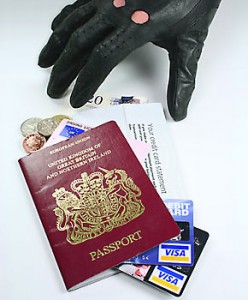WEI, TSA, and Airport Security
First off, let’s get those abbreviations in order.
WEI – that means weapons, explosives and incendiaries. I.e. things that (according to Blogger Bob Burns of the TSA Blog) “go BOOM”, shoot things out of barrels or can make holes in people in other ways or things that burst into flame. Not necessarily in that order. The fact that you’re not allowed to take those things onboard an aircraft is regulated by this regulation right here (US regulation – does not apply outside the US).
TSA – This is the Transportation Security Administration, the federal agency responsible for (maybe you guessed it) transportation security inside the US. The agency is a part of the DHS (Department of Homeland Security), and contrary to popular belief in many Americans, the TSA has no jurisdiction outside the US – absolutely none. Other countries have different rules, many other countries use private companies for airport screening and the experience can – and will – be very different from country to country. Inside the EU, for example, you will most likely meet a very similar, unified experience when you go through airport security, but that might not be the case in Asian or African countries.
Airport Security – Okay, so it’s not an abbreviation. We’ll include a little about it. Airport security is the system in place to try and make sure that air transport of both passengers and goods as safe as possible, and as impervious to tampering as possible. That’s all, really.
The Trouble?
As things stand now, the TSA technically only has mandate to only search/look for WEI when they screen passengers.

A lot of controversy rises from the fact that their officers frequently find and take action on other illegal items such as large amounts of currency, illegal drugs or animals being transported through their checkpoints. Now, why would they action on those things? The answer is rather simple.
Persons who transport large amounts of currency: This is not all that normal in a world ruled by plastic cards and internet banking solutions. Well, anywhere but in the US, that is. The US has an ancient banking system, frankly being frowned upon and ridiculed around the world. Checks, for example, are not negotiable anymore, in most modern countries. They’re just not being used, or issued, anymore. Credit cards have long been used in the US, and AmEx was one of the first countries to offer that kind of thing, but debit cards (if you’re a US citizen, that means that you use money that’s actually in your bank account, not fictional money that you don’t have) instead of borrowing money at insane interest rates.
For this reason, and more, there are strict customs rules that say you have to declare the money you take out (and sometimes into) a country. Carrying large amounts of cash that hasn’t been declared is a tell-tale sign of money laundering. Criminals can be desperate, and if they perceive a threat to their cash while onboard, they might do something crazy.
Incidentally, this is also why the TSA and other airport security agencies will take action if they find illegal substances on you. People on drugs aren’t safe, it’s as simple as that. So, this explains why airport security officials will sometimes… ah… detain you for some time if they find that kind of stuff on you.
Okay, but what about the ID checks?
Checking ID is a part of security. Both the airlines, the TSA and LE wants to know that you’re you, and you’re the one that bought or booked the ticket, and that you’re the intended passenger. Simple as that. The system has flaws, we all know that, so we won’t get into it any more than that – at least you know the reason now.
But there’s something else. There have been reports of TSA personell (we haven’t seen any other country/agency doing this) rifling through credit cards / cards of other kinds to “check that the names match”. This, friends, is illegal. Checking for ID fraud is not part of the TSA’s mandate, and it has nothing to do with WEI or airport security. If an airport security officer does this to you, you may take appropriate action against them. Also, report the incident to the police, obtain the security footage if you can (in the US, you should file a FOIA request) and press the matter as far as you can.
So, ID check = okay, while checking for ID fraud = not okay.
Scope
It can be hard for a security officer to keep in mind the things that he/she can and can’t do when it comes to searches. Most officer “err on the side of caution” and are too thorough, overstepping their boundries. Now, that is probably a better way to do it than being careless about the whole thing, but that doesn’t mean that it’s right.
Properly trained security officers know what their limits are, and this is something we get a lot of questions about. Security officers aren’t law enforcement (LE) and they can’t (normally) arrest you. Mind you, there are exceptions to this, and you should check what rules the country you’re travelling from have. This is important.
Training is essential, and this is something which has been lacking with the TSA. A hasty setup and a sloppy, knee-jerk chain of reactions to events have left screeners and officers, as well as the management, sorely lacking in training, which then leads to mistakes and failures time and time again.
Remember, that government slogan that everyone so love applies the other way too – if you see something, say something. If you do notice something odd happening, or if something odd happens to you, then you should contact either the TSA, the police (probably a better idea) or the DHS. Or send us an email and tell us about it. Our address is contact@snallabolaget.com , and we guarantee a faster response time than the TSA. Or the DHS. Also, we won’t touch your junk. Ever.
